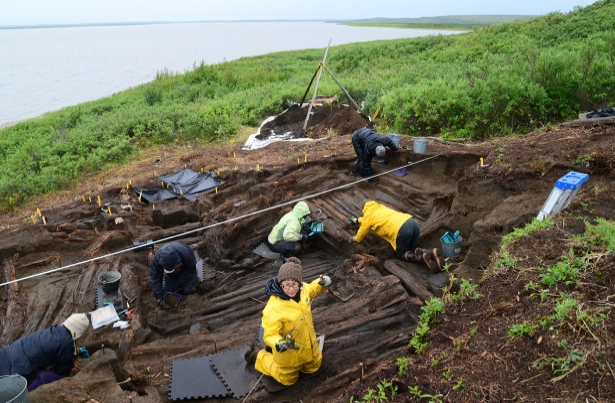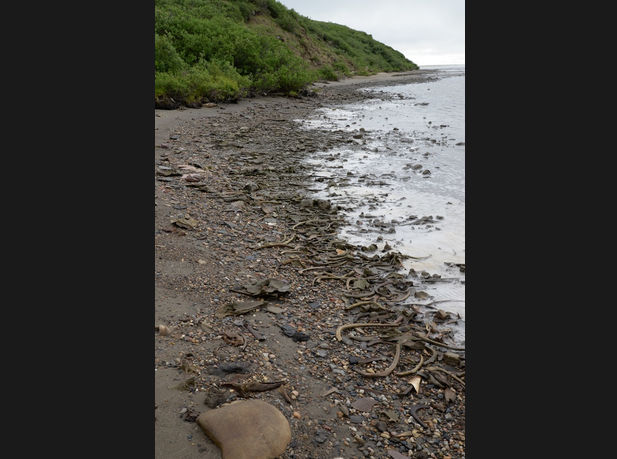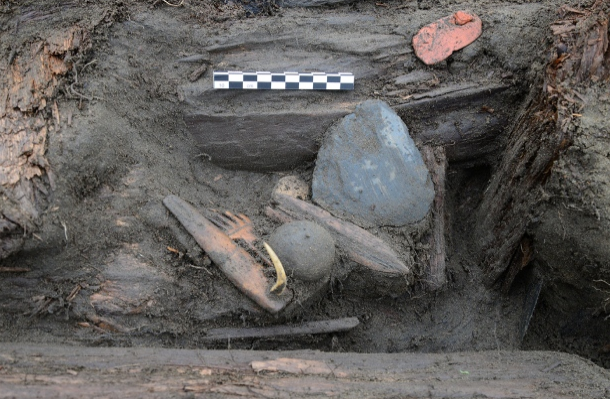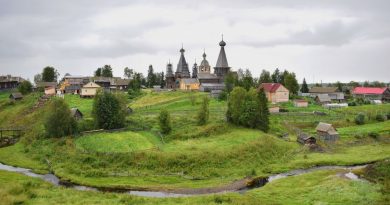Archeologists uncover Inuit driftwood house in Canada’s western Arctic

(Courtesy Max Friesen)
For archaeologists and anthropologists, it’s an extremely exciting and rare find.
They have begun work on a rare site of driftwood houses used hundreds of years ago by Inuit in Canada’s western Arctic . In fact, the one being excavated this year is the first complete example of this type of structure found.
Max Friesen is leading the archaeological dig. He is a professor in the Department of Anthropology at the University of Toronto.
The houses are located in what might well have been the largest community of its type in the High Arctic. The site is near the Inuit community of Tuktoyaktuk in Canada’s Northwest Territories.
These cruciform houses were large, well-built structures using driftwood which floated down the Mackenzie River from the boreal forests farther south.
With a large central floor area, there were alcoves, or bench areas built on three sides, with an entrance tunnel on the fourth side, giving it it’s cruciform style.
Each house would have been home to two to four or more families.
For more on these remarkable archaeological finds, Radio Canada International’s Marc Montgomery spoke with the University of Toronto’s Max Friesen:
Threat posed by climate change
Professor Friesen says they would have been in use from approximately five hundred years ago until the early 1900’s and he speculates they were abandoned for possibly two reasons. The first may have been that the Mackenzie River in that area may have silted up, pushing the beluga whales, a major food source, further away. The second reason may have been devastating epidemics that swept through the aboriginal communities in the late 1800’s and early 1900’s.
He says these houses and their artefacts are important links as it was around this time that the Inuit were encountering Europeans for the first time and could reveal how that contact may have influenced behaviour and customs.
He also notes that the permafrost has kept the structures and artefacts in excellent condition.
However, he notes that the warming and changing climate is now posing a serious threat to this and many other shoreline sites.
Higher water levels, less ice, more storms and melting permafrost are all combining to create severe shore erosion.
He notes that in some places the shoreline is being eroded back at a rate of 5 metres a year.
Professor Friesen plans to complete excavation at and around the site over the next couple of years before it’s washed away.
Related stories from around the North:
Canada: The discovery of an Arctic shipwreck, Radio Canada International
Finland: Archaeological sites targeted in Finland, Yle News
United States: Crews unearth military history on Alaska Glacier, Alaska Dispatch





